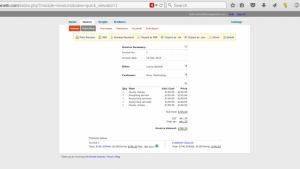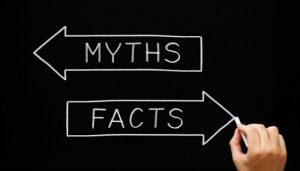Despite mounting anxieties over the country’s wealth gap, the idea of placing an absolute cap on how much money Americans should be allowed to earn has never, for obvious reasons, gained a ton of currency here.
However, according to an exclusive new Harris Poll conducted for Fast Company on the topic of personal wealth, one-third of millennials at least aren’t against the idea. Thirty-three percent say that a cap should exist in the United States on personal wealth, a surprisingly high number that also made this generation a bit of an outlier: No other age group indicated this much support.
Now, previous surveys have indicated broad support for taxing wealthy people more. President Joe Biden’s billionaire minimum income tax, a new version of which is expected to appear later this week in his budget request to Congress, also has enjoyed strong support. His revisions would tighten loopholes and generally make it harder for households whose net worths exceed $100 million to wiggle out of taxes. But this would simply require America’s richest 0.01% to pay a minimum 25% tax rate.
What makes Harris’s finding more interesting is that support survey-wide for a wealth cap otherwise decreases with age, the way you’d expect it to: 17% among Gen X, 7% among baby boomers, and a mere 2% among the Silent Generation, most of whom are in their eighties and nineties. For Gen Z, the youngest group, 26% agreed there should be a cap in the United States.
Across age groups, 60% of respondents said personal wealth should not be capped, while only 19% said it should.
It’s true the younger generations have more positive views of economic redistribution, vaguely defined. Young adults’ feelings about socialism have hovered around 50% positive for a decade. During this period, their views of capitalism have also sunk, to where capitalism and socialism now sometimes tie in polls of millennials and Gen Z. The two groups view free enterprise and small businesses favorably, but express concern about companies getting too big or wealthy, and seem all right with the idea of government checking that power.
But what explains millennials’ outlier support for an actual cap on wealth? Harris asked all the respondents who supported one a follow-up question that complicates things even more: If there were a cap, what should the max be? Over half of Gen Z answered $1 million or less (with 38% choosing under $500,000). Millennials, on the other hand, are all over the map: Their top range (picked by 16%) was $100,000 to $500,000, but in second place, with 14%, was $10 million to $49.9 million.
Where were you in ’08?
The difference may come from lived experiences. Gen Z is too young to have worked through modern America’s two biggest economic crises: The Great Recession, which began in 2008 when the oldest Gen Zers were 11 years old but many millennials were starting their careers, and then the COVID-19 pandemic, during which the majority of Gen Zers were college-aged.
The Great Recession, of course, had an unerasable effect on those affected by it. A slowdown, job cuts, dips into savings, and the discovery that something as desirable and all-American as mortgages can be “toxic.” Once the pandemic years are included, the average millennial has actually experienced the slowest-ever rate of U.S. economic growth since entering the workforce, saddling them with worse earnings, therefore less wealth, and therefore delayed mileposts of success, such as opening retirement accounts or buying their first homes.
More than the generations above and below them, millennials are also sinking under the weight of their debts: Government data last month showed that Americans in their thirties now account for almost $4 trillion of total household debt. That’s a 27% increase since 2019, and the steepest hike among all generations. And inflation has sent consumer prices soaring over the past year, adding sometimes double-digit increases to the cost of goods and services like food, gas, and childcare.

With the Fed still raising interest rates nationwide, credit card payments have climbed in sync, and the whole situation appears to be leaving millennials in particular increasingly resentful. On Tuesday, the New York Times ran a lengthy piece by opinion writer Jessica Grose, headlined “This isn’t what millennial middle age was supposed to look like,” which is essentially a bunch of 30- and 40somethings venting about student loans, job instability, anxiety, lost potential, living alone, and not fearing a midlife crisis because “my whole adult life has been one long crisis.”
(11)
Report Post






